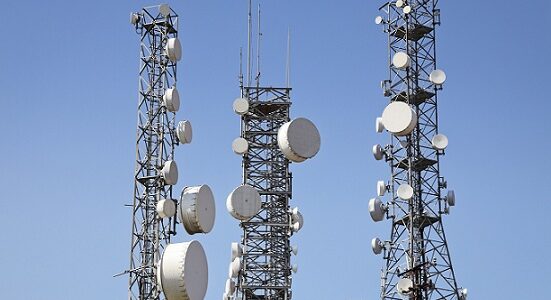
As anticipated, the Nigerian Communications Commission’s recent approval of a 50% increase in telecommunications tariffs has sparked heated debate across the country.
While telecom operators are celebrating the decision as a crucial step towards ensuring the sector’s financial viability, consumers and advocacy groups are expressing deep concerns about the potential impact on affordability and accessibility of these essential services.

“While the tariff increment falls short of our initial request, it’s a welcome development and a significant step forward for the sector,” stated Gbolahan Awonuga, National Secretary of the Association of Licensed Telecommunication Companies of Nigeria (ALTON).
Telecom operators have been vocal about the mounting pressures they face, citing rising operational costs, including energy, infrastructure maintenance, and the devaluation of the naira.

They argued that the tariff hike is not merely a profit-driven move, but a necessary measure to sustain investments in network upgrades and ensure the continued delivery of quality services.
“The increased costs have significantly impacted our bottom line. This adjustment is crucial for us to continue investing in network expansion, improving service quality, and driving innovation within the sector”, MTN Nigeria Chief Executive Officer, Karl Teniola had stated.
However, consumer groups and individuals are expressing serious concerns about the impact of this significant price hike. Many argued that it will disproportionately affect low-income households and small businesses, further straining their already tight budgets.
“This tariff increase is a major blow to ordinary Nigerians,” the National President, National Association of Telecommunications Subscribers (NATCOMS), Adeolu Ogunbanjo said in a statement.
He criticised the approved 50% tariff increase for the telecom industry by the NCC, stating that it is excessive and would place an undue burden on subscribers.
He acknowledged the economic challenges faced by the industry but argued that a moderate increase of 5% to 10% would be more acceptable. He proposed that telecom companies explore alternative funding options such as initial public offerings (IPOs) or issuing stock on the capital market to raise funds.
“The federal government’s approved 50 percent tariff hike is unacceptable. This will affect everyone from the biggest industry to the smallest company, such as the Point of Service (POS) operators. It will increase operational costs.
“We now depend on telecoms for our meetings, for the banks, everybody depends on it even the education sector, yes, a lot of things depend on it,” he stated.
The NATCOMS President highlighted the issue of outstanding debts between telecom companies and banks.
He said, “The telcos are owing themselves, I suggest that these debts be settled to improve the financial health of the industry before considering a fee increase.”
He expressed strong opposition to the 50% increase and plans to contest it in court, given that it was proposed by the regulator, NCC. “Telecommunications services are no longer a luxury; they are essential for education, business, and social interaction. This decision will undoubtedly impact the livelihoods of many”, Ogunbanjo said.
The NCC has defended its decision, emphasising the need to balance the interests of both telecom operators and consumers.
sustainability of the industry, support indigenous vendors and suppliers and promote the overall growth of Nigeria’s digital economy.
“As a regulator, the NCC will continue to engage with stakeholders to create a telecommunications environment that works for everyone—one that protects consumers, supports operators, and sustains the ecosystem that drives connectivity across the nation”, the Commission stated in its statement.
Meanwhile, with the latest tariff hike approval, it means that upon implementation, Nigerians may be paying N16.5 per minute for calls from N11, the cost of SMS to N6 from N4, and the cost of 1 gigabit of data – N431.25.
Also, telcos may rank in N6.7 trillion annually in revenue from calls only with the new tariff regime; this is because 2023 national telephone traffic data showed that total outgoing telephone traffic was 205.3 billion minutes, while incoming traffic stood at 203.2 billion minutes.
Credit: The Sun
